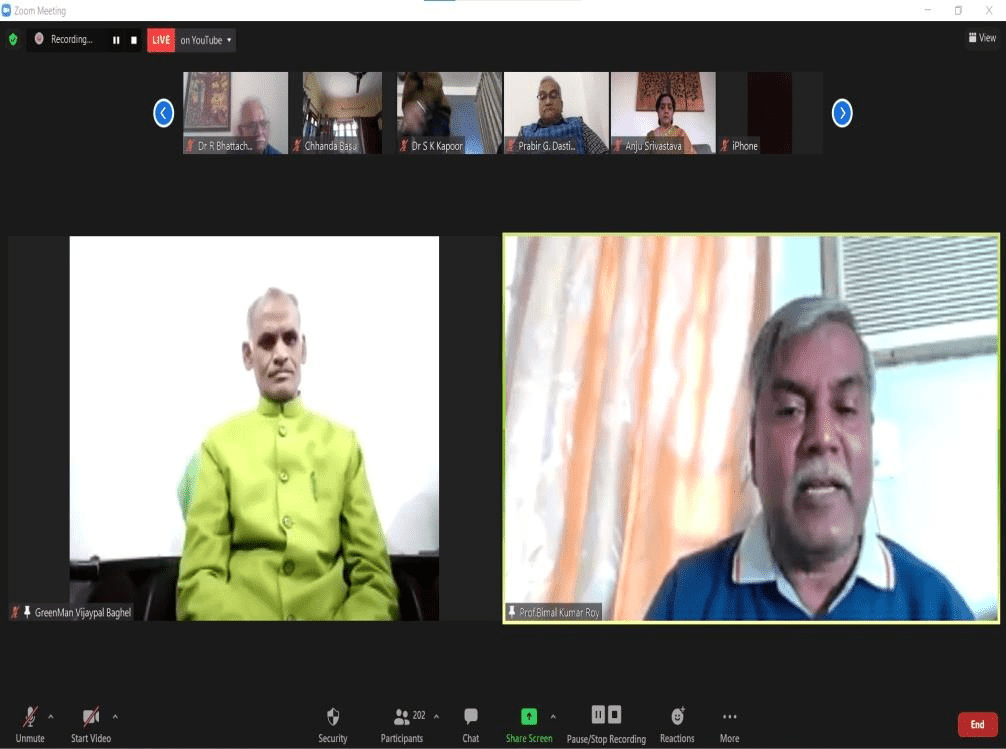EWASH 2020
Action points emerging from the International Conference on Environment, Water, Agriculture, Sustainability and Health (EWASH-2020): Expanding our vision post COVID-19 held online from 19-20 December, 2020
Year 2020 witnessed all countries across the world, united in their battle against the worst pandemic of
the century i.e., COVID-19. As the deadly disease continued its wrath, we slowly and steadily rose from
the repercussions of the much needed lockdowns and accustomed ourselves to the ‘new normal’ life.
Staying indoors for several months has given us the time to retrospect and realize that now, more than
ever before, we need to focus on our environment and ecosystem for creating a sustainable future. In this
perspective, year 2021 is optimistically being termed as the ‘year of healing’-of environment and
humanity, as a whole.
In relevance to this context, the International Conference on Environment, Water, Agriculture,
Sustainability and Health (EWASH-2020): Expanding our vision post COVID-19 was organized by Save
The Environment in association with CSIR-NEERI, Royal Society of Chemistry North India section,
Hindu College, University of Delhi and ESDA, Delhi, with gracious support from NABARD and Gaur
Surgicals. The major objective of EWASH-2020 was to discuss the currently needed strategies and
policies for environment protection, water management for agricultural and industrial purposes and
overall health improvement, in a post COVID-19 scenario. The two day virtual conference was an
intellectual amalgamation of eminent scientists, academicians, policy makers, industrialists, social
activists and budding young researchers who proficiently contemplated in one screen for strategizing a
sustainable environment.
Padma Shri Prof. Bimal Kumar Roy graced the inaugural session of EWASH-2020 as The Honorable
Chief Guest. Prof. Roy reflected upon the implementation of surveys and accurate data interpretation that
will aid in getting the exact picture of how the environment and people have been affected in the past
year, so as to facilitate required solutions. Shri Vijaypal Baghel, renowned environmentalist and social
activist, popularly known as ‘The Green Man of India’ was The Honorable Guest of Honor in inaugural
session. Shri Baghel was kind enough to share his expert views on the importance of conducting
awareness programs, especially in the rural and semi urban communities, on topics related to conservation
of green cover, rural development and mitigation of issues being faced by agriculturists. This was
followed by two days of extensively informative and enlightening keynote addresses and invited lectures
by eminent scientists, professors and researchers. There were several innovative ideas shared by young
researchers and students in form of oral and poster presentations. The two day program of EWASH-2020
was concluded with an august valedictory session, that Shri Sanjeev K. Varshney, Head, International
Cooperation, DST, Govt. of India graced as The Chief Guest. Shri Varshney stressed upon the need of
water management for agro-industrial purposes and introduced us to current reforms that have been
proposed by the DST, Govt. of India.
Overall, EWASH-2020 culminated with several deliberations that have to be implemented meticulously
for creating a bluer and greener Earth. Contemporary policies that need to be undertaken in agriculture
and water sectors for meeting the demands of global produce were elaborately discussed. Improvement of
human health by maintenance of personal hygiene as well as that of our environment to prevent contagion
was a key topic.
The major action points/ outcomes of EWASH 2020 are listed below:
1. Amendments required in existing policies to ensure better environment management in the wake of
pandemic were discussed.
2. Strategies for repurposing water sources to meet agricultural and industrial demands were proposed.
3. A brainstorming session was conducted pertaining to the results of numerous studies carried out in
2020 for assessment of risk factors on public health.
4. Application of interdisciplinary and transdisciplinary approaches for fulfilling the aforesaid objectives
were duly chalked out.
5. Extensive awareness programs in rural and semi urban regions for fast tracking social development
were proposed that will be undertaken in the near future.


.webp)